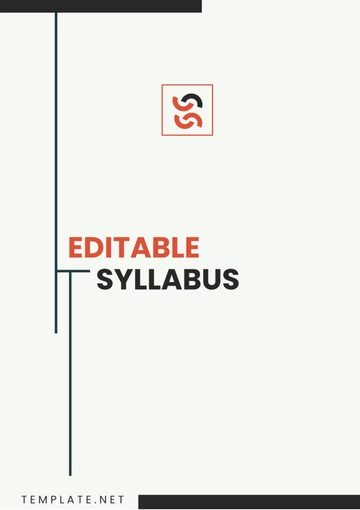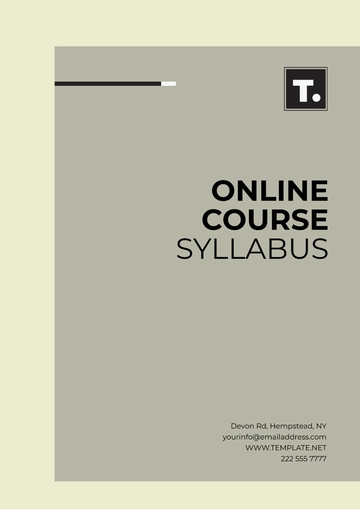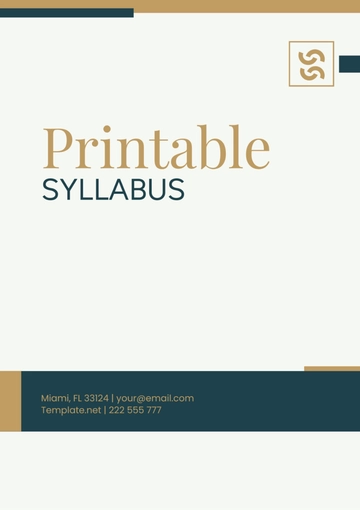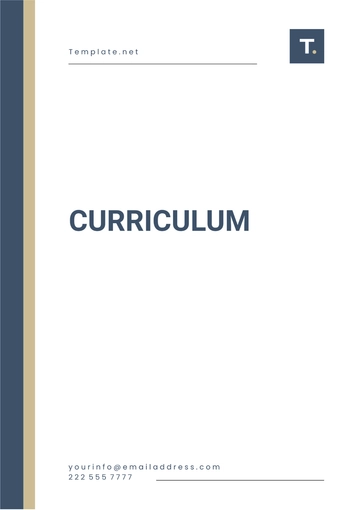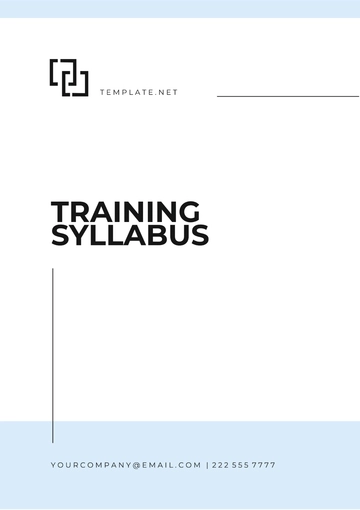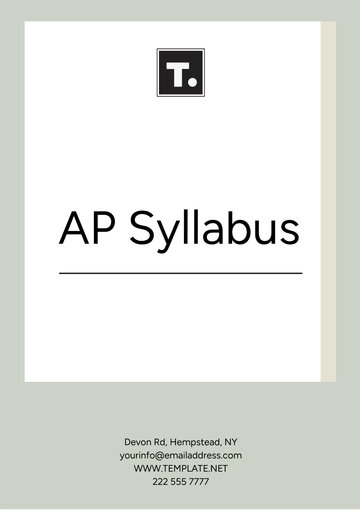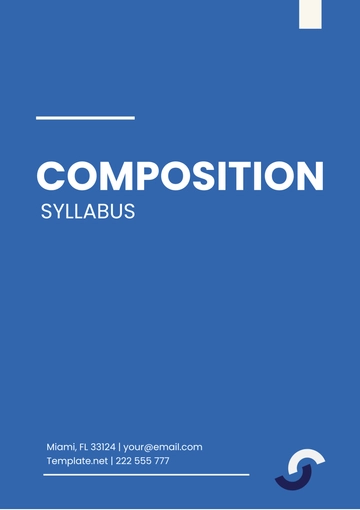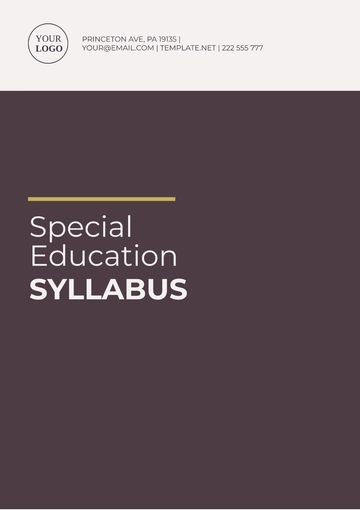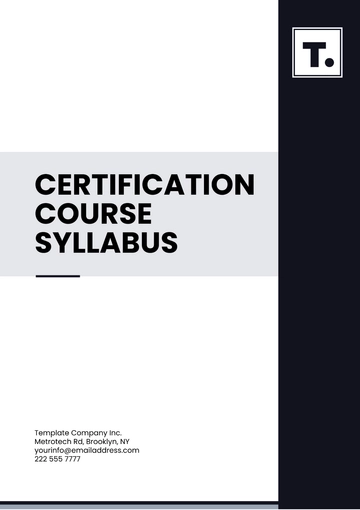Free Biostatistics Syllabus
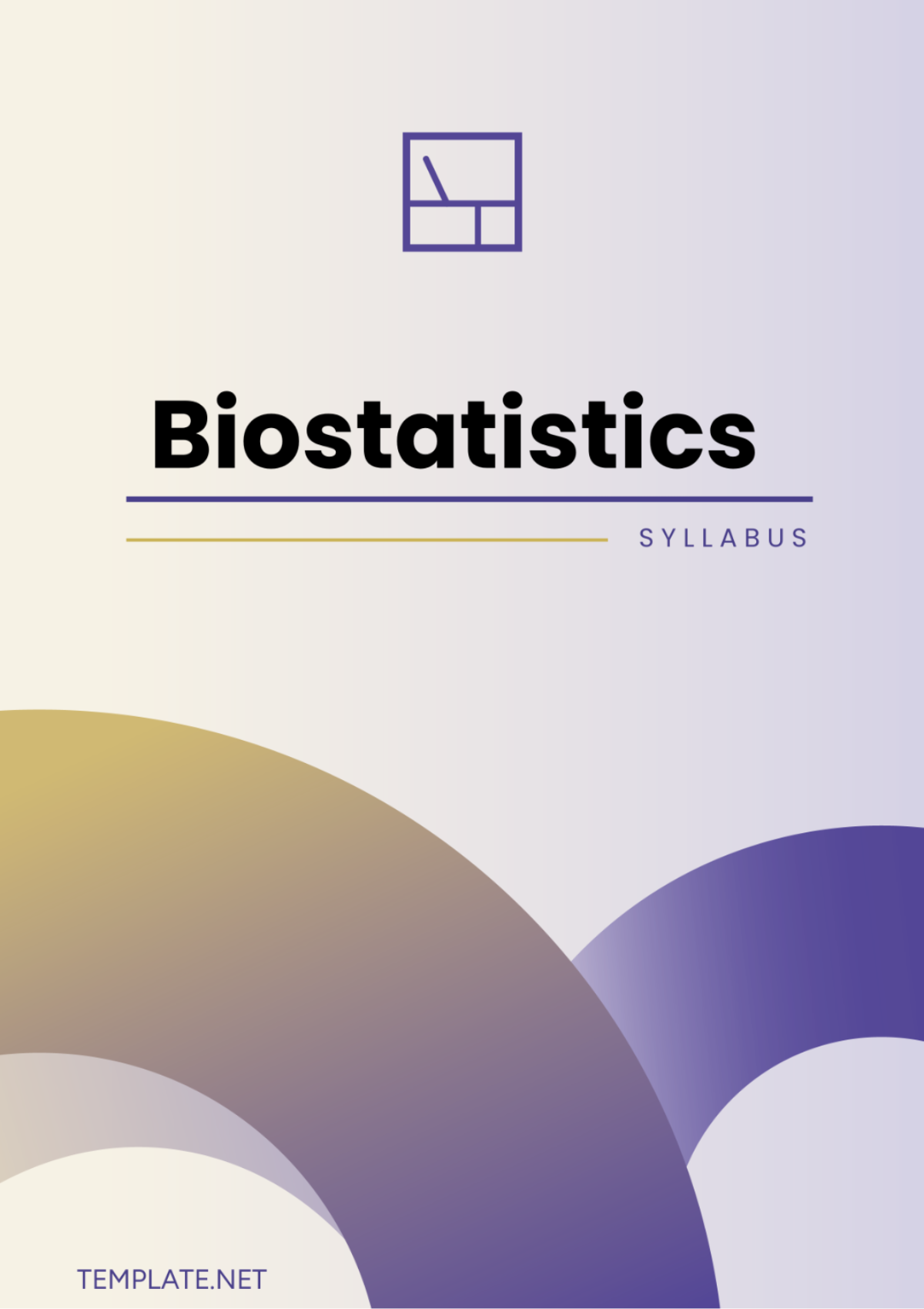
Biostatistics Course
Course Title | [COURSE TITLE] |
Course Code | [COURSE CODE] |
Office Hours | [OFFICE HOURS] |
Class Location | [CLASS LOCATION] |
Class Time | [CLASS TIME] |
Class Duration | [DATE] - [DATE] |
1. Course Description
This course is an application of statistical methods and reasoning to the collection, analysis and interpretation of data in biological sciences. A focus on statistical concepts primarily used in biomedical research and public health such as probability, techniques of data analysis, data interpretation, and hypothesis testing will be emphasized. It is designed for students pursuing studies in the field of biological, environmental, and health sciences.
2. Instructor Information
Name: [YOUR NAME]
Email: [YOUR EMAIL]
Organization: [YOUR COMPANY NAME]
3. Learning Objectives
Grasp biostatistics' key principles and how they apply in biology and health sciences.
Master various statistical techniques and interpret statistical results
Analyze data using statistical software
Develop skills in designing, implementing, and reporting a statistical study
Apply biostatistical methods to real-world research questions in biological and health sciences
4. Course Schedule
Week | Topic | Activity |
|---|---|---|
1 | Introduction to Biostatistics | Lecture and Discussion |
2 | Descriptive Statistics | Presentation and Practice Problems |
3 | Probability Distributions | Lecture and Problem-Solving Session |
4 | Sampling Distributions | Review & Application Exercises of Concepts |
5 | Hypothesis Testing | Theory Overview and Case Studies |
6 | Comparing Groups | Analysis Techniques and Group Exercises |
7 | Survival Analysis | Introduction and Data Analysis Exercises |
8 | Experimental Design | Project Kickoff & Theory Overview |
9 | Biostatistics Advanced Topics | Guest Speaker and Discussion |
10 | Midterm Exam Review | Review Session and Practice Problems |
11 | Longitudinal Data Analysis | Theory and Case Study Review |
12 | Meta-Analysis | Introduction and Research Paper Review |
13 | Final Project Presentation | Group Presentations and Peer Feedback |
14 | Evaluation & Conclusion of Course | Final Exam Preparation and Reflection |
5. Required Reading and Material
Biostatistics: A Foundation for Analysis in the Health Sciences by Wayne W. Daniel
Biostatistics: The Bare Essentials by Geoffrey R. Norman and David L. Streiner
Principles of Biostatistics by Marcello Pagano and Kimberlee Gauvreau
Introduction to Biostatistical Applications in Health Research with Microsoft Office Excel by Robert P. Hirsch
Access to a computer with Statistical software (e.g., SPSS, R)
6. Assignments and Assessments
Weekly Homework: Practice problems will be assigned to deepen understanding of course material.
Group Projects: Students will work in small teams to conduct and present a statistical analysis of a dataset.
Examinations: Two midterm exams and a comprehensive final exam will assess understanding and application of concepts.
Final Paper: A written report detailing the statistical analysis of a chosen dataset will be required.
Class Participation: Active involvement in class discussions will contribute to final grade.
7. Course Policy
Attendance: Regular attendance is expected. Absences must be communicated in advance.
Participation: Respectful and regular participation in class discussions is essential.
Academic Integrity: Plagiarism and cheating will not be tolerated. Violating academic integrity policy will lead to a failing grade in the course.
Deadlines: Assignments and assessments must be submitted by the due dates. Late submissions may be penalized.
Accommodations: Students with accommodations must provide official documentation at the start of the course.
8. Grading Policy
Component | Weight |
|---|---|
Assignments | 30% |
Exams | 30% |
Final Paper | 20% |
Class Participation | 20% |
Disclaimer
While every effort has been made to ensure the accuracy and completeness of the syllabus, unforeseen circumstances may necessitate changes to the course structure, assignments, or schedule. The instructor reserves the right to modify the syllabus as needed to enhance the learning experience or address emergent issues. Any alterations will be communicated promptly to students through official channels. Your understanding and cooperation are appreciated as we strive to deliver a high-quality educational experience.
- 100% Customizable, free editor
- Access 1 Million+ Templates, photo’s & graphics
- Download or share as a template
- Click and replace photos, graphics, text, backgrounds
- Resize, crop, AI write & more
- Access advanced editor
Crafted by Template.net, our Biostatistics Syllabus Template offers unparalleled convenience. Editable and customizable, it empowers educators to tailor their syllabi effortlessly. Seamlessly integrate your curriculum specifics, all editable in our Ai Editor Tool. Elevate your teaching experience with precision and ease.

